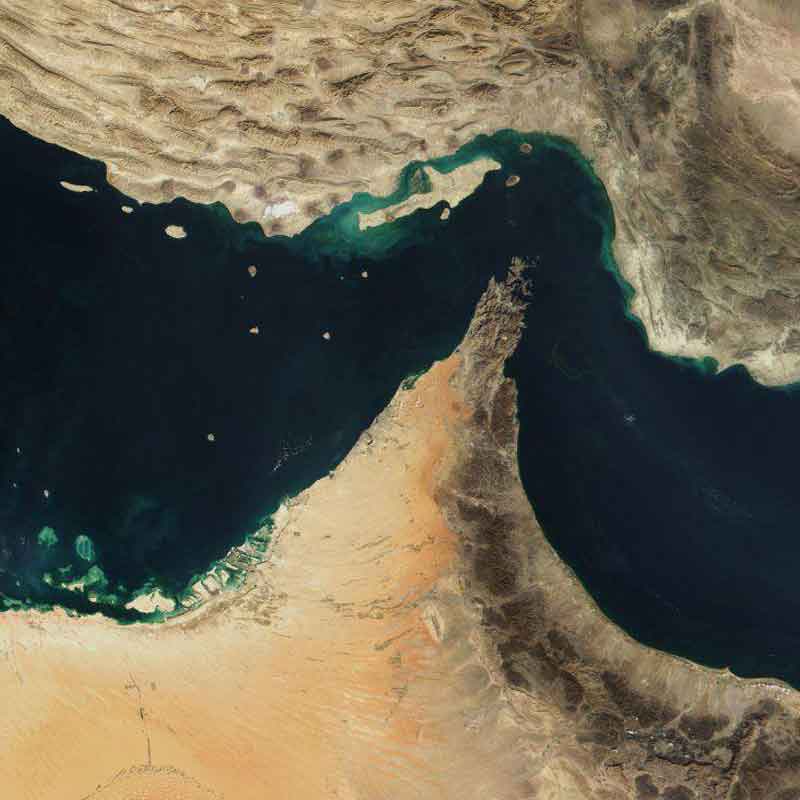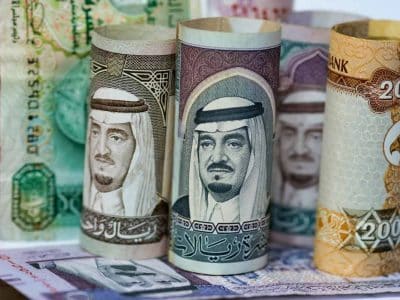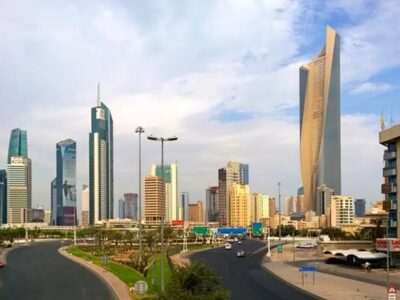Gulf countries must focus on building resilience against impending threats to economic stability and growth as the risk of regional conflict rises following heightened geopolitical tensions in the Middle East, experts told Arabian Business.
Geopolitics can have a “direct, obvious impact on economies,” according to Abishur Prakash, founder of geopolitical consultancy The Geopolitical Business.
Economic shifts can have far-reaching consequences such as China’s foreign direct investment going negative for the first time since record-keeping began in 1998 or the “brain drain” taking place in Russia as technology talent leaves.
“Globally, we are going through a period of elevated geopolitical risk from the war in Ukraine and Russia’s challenge to the global economic order to deteriorating relations between China and the US,” said Nemr Kanafani, Senior Economist at the Conference Board.
He added that they both point to “the possible retreat of globalisation and international cooperation at a time when that is needed most of all, not least to address the challenges of limiting global warming.”
Threats stem from both within the region and escalating global tensions. “The risk remains relatively contained for the GCC given that the conflict has not yet spread beyond Israel and the Occupied Territories,” said Kanafani. However, should Iran enter the Gaza-Israel conflict directly or indirectly through its proxies in Lebanon or elsewhere, “the risks could rise for the GCC.”
For the Gulf in particular, Kanafani noted that conflicts endangering vital oil routes through the Strait of Hormuz or a broad regional war enveloping Iran would pose some serious economic harm.

Slowing Chinese consumption paired with difficulties maintaining production cuts also jeopardises Gulf budgets, he said, as oil income underpins state spending and living standards across the region. A faltering global or domestic economy adds strain.
But beyond a regional war, economist Omar Al Ubaydli, director at Bahrain-based thinktank DERASAT, believes “the biggest risk” for the Gulf is a sharp decline in oil prices which would generate “considerable economic and social stresses” for the hydrocarbon-reliant region.
To strengthen resilience against these mounting pressures, the experts unanimously stressed the need for Gulf states to continue to diversify their economies, safeguard fiscal sustainability and deepen regional coordination.
Currently, GCC countries possess fiscal cushions and security cooperation insulating against localised violence. But the three experts concurred greater fortification is imperative against broadsides.
Diversifying non-oil industries remains a core defensive tactic. “Most shocks either adversely impact oil prices, or adversely affect their ability to export oil, both of which negatively impact their economy,” Al Ubaydli told Arabian Business. Transitioning away from over-reliance on the energy sector through economic visions like Saudi’s Vision 2030 remains paramount.
Yet he advocates “allocating greater resources to diversification research”, recognising uncharted terrain requires adaptive strategies.
“The Gulf countries have significant room for improvement when it comes to dealing with geopolitical shocks,” he said, as most shocks either negatively impact oil prices or the nation’s ability to export oil – adversely impacting the economy. GCC members are aware of this, which is why they continue to diversify their economies and international partnerships simultaneously, to limit the negative impact of global shocks.
However, Prakash cautioned that diversification alone is insufficient without supporting reforms and robust macroeconomic policy.

Fortifying public finances also absorbs blows. “Sustainable debt levels and healthy non-oil government revenues are some of the policy objectives that we see in the GCC that ensure resilience,” added Kanafani.
Regional collaboration likewise reinforces defenses by pooling capabilities and risks. With rising geopolitical polarisation fracturing global cooperation, Prakash advocates a “bloc-based approach, not global.” Revitalising initiatives such as the India-GCC economic corridor could help diffuse external pressures.
As uncertainty mounts, Gulf states face growing urgency to fortify their economies. By doubling down on diversification, maintaining fiscal discipline, and deepening regional alliances, experts argue the region can strengthen its resilience against escalating global instability and conflicts close to home. The costs of inaction could be severe as geopolitical headwinds batter global growth.
Threats to Gulf economic resilience
However, according to Prakash, “several big threats could spell disaster for the global economy.” This includes a massive state-driven cyberattack that shuts down key sectors of a major economy.
He also said that a permanent deterioration of US-China ties “could spill over into a crisis over Taiwan or a new economic war between the West and Beijing.”
Additionally, the new era of “nuclear chess” is underway, as nations move nuclear weapons a tipping point could emerge where the placement of nuclear weapons begins to affect economic integration and flows.

Lastly, the AI threat. “As AI advances, the propensity for deepfakes to sow chaos in societies is high. When the Ukraine war began, the EU warned that disinformation could cause a run on the banks,” added Prakash, who believes the next economic crisis could be started by AI-driven disinformation.
Steady fortification from various angles can better garrison Gulf economies against surging global volatility. Diversification, fiscal prudence and regional solidarity construct resilience for navigating turbulence ahead. With diligence, GCC nations can reinforce defenses against coming geopolitical storms.
“Resilience is connected to fallout,” said geopolitical analyst Prakash.
“A geopolitical event can take place in one part of the world, but if the “effects” of that event do not make it beyond an initial radius, then most countries and companies do not need to be resilient.”









